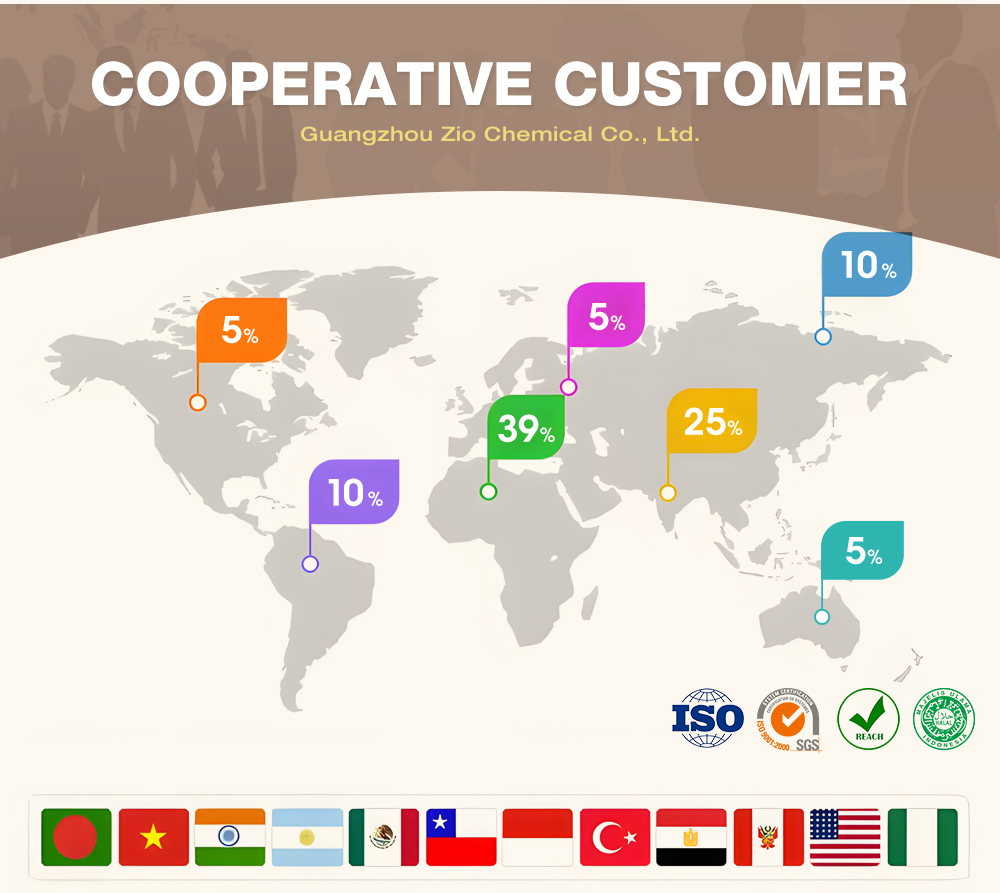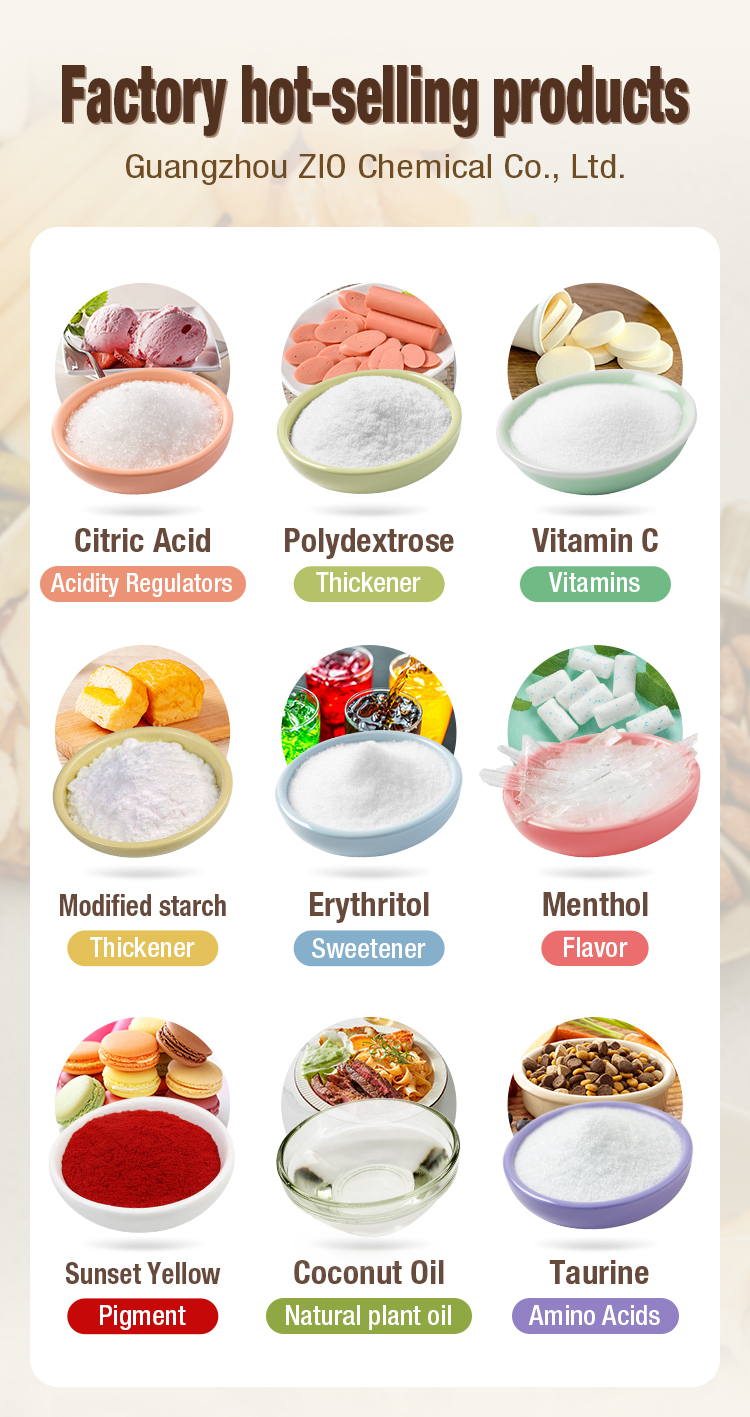| Availability: | |
|---|---|
| Quantity: | |











Dextrose Monohydrate (CAS No.: 5996-10-1), also known as glucose monohydrate, is a natural monosaccharide produced via enzymatic hydrolysis of corn starch. This white, odorless crystalline powder has a mild, sweet taste and key technical specifications: ≥99.5% purity, moisture content 7.0%–9.0%, and dextrose equivalent (DE) of 99+. Compliant with China’s GB 1886.173, USP, and FCC standards, it is a versatile sweetener and energy source widely used in food, beverage, and pharmaceutical industries—offered at competitive bulk pricing.
Rapid Energy Supply: Absorbed into the bloodstream within 15–30 minutes of consumption, making it ideal for energy-boosting products (e.g., sports drinks, energy bars).
Fermentation Promotion: Serves as a preferred carbon source for yeast and bacteria, increasing fermentation efficiency by 20% in bread, beer, and yogurt production.
Moisture Retention: Binds to water molecules in baked goods, extending shelf life by 3–5 days and preventing staleness in bread and cakes.
Cost-Effective Sweetness: Provides 70% of sucrose’s sweetness at 30% lower cost, suitable for high-volume production (e.g., confectionery, beverages).
Nutritional Value: Contains 3.4kcal/g and is a natural source of glucose, supporting "natural ingredient" labeling claims.
Baking Industry: Added at 5%–15% in bread dough to feed yeast, improve crust browning, and enhance softness. In cakes, it increases moisture retention and extends freshness.
Sports Nutrition: Incorporated into energy drinks and gels at 2%–8% to deliver instant energy during exercise, with optimal absorption when paired with fructose (2:1 ratio).
Confectionery: Used at 10%–30% in hard candies and caramels to control crystallization and create a smooth texture, reducing the risk of product breakage.
Pharmaceutical Industry: Formulated into oral rehydration salts (ORS) at 20g/L to treat dehydration, and as a filler in tablets (20%–40% of tablet weight).
Q: How to store dextrose monohydrate to prevent caking?
A: Store in a cool (20°C–25°C), dry area with relative humidity ≤ 60%. Keep the original polyethylene-lined kraft bag sealed; caking can be reversed by gentle grinding if stored properly (shelf life: 24 months).
Q: What’s the difference between dextrose monohydrate and anhydrous dextrose?
A: Dextrose monohydrate contains one molecule of crystalline water (hence the moisture content), while anhydrous dextrose is water-free. Monohydrate is preferred for moist products (e.g., bread), anhydrous for dry mixes (e.g., cake powders).
Q: Is it suitable for infant food formulations?
A: Yes. It meets WHO standards for infant nutrition, with heavy metal content (lead ≤ 0.1ppm, arsenic ≤ 0.05ppm). It is commonly used in infant cereals and formula milk at 1%–3%.

Dextrose Monohydrate (CAS No.: 5996-10-1), also known as glucose monohydrate, is a natural monosaccharide produced via enzymatic hydrolysis of corn starch. This white, odorless crystalline powder has a mild, sweet taste and key technical specifications: ≥99.5% purity, moisture content 7.0%–9.0%, and dextrose equivalent (DE) of 99+. Compliant with China’s GB 1886.173, USP, and FCC standards, it is a versatile sweetener and energy source widely used in food, beverage, and pharmaceutical industries—offered at competitive bulk pricing.
Rapid Energy Supply: Absorbed into the bloodstream within 15–30 minutes of consumption, making it ideal for energy-boosting products (e.g., sports drinks, energy bars).
Fermentation Promotion: Serves as a preferred carbon source for yeast and bacteria, increasing fermentation efficiency by 20% in bread, beer, and yogurt production.
Moisture Retention: Binds to water molecules in baked goods, extending shelf life by 3–5 days and preventing staleness in bread and cakes.
Cost-Effective Sweetness: Provides 70% of sucrose’s sweetness at 30% lower cost, suitable for high-volume production (e.g., confectionery, beverages).
Nutritional Value: Contains 3.4kcal/g and is a natural source of glucose, supporting "natural ingredient" labeling claims.
Baking Industry: Added at 5%–15% in bread dough to feed yeast, improve crust browning, and enhance softness. In cakes, it increases moisture retention and extends freshness.
Sports Nutrition: Incorporated into energy drinks and gels at 2%–8% to deliver instant energy during exercise, with optimal absorption when paired with fructose (2:1 ratio).
Confectionery: Used at 10%–30% in hard candies and caramels to control crystallization and create a smooth texture, reducing the risk of product breakage.
Pharmaceutical Industry: Formulated into oral rehydration salts (ORS) at 20g/L to treat dehydration, and as a filler in tablets (20%–40% of tablet weight).
Q: How to store dextrose monohydrate to prevent caking?
A: Store in a cool (20°C–25°C), dry area with relative humidity ≤ 60%. Keep the original polyethylene-lined kraft bag sealed; caking can be reversed by gentle grinding if stored properly (shelf life: 24 months).
Q: What’s the difference between dextrose monohydrate and anhydrous dextrose?
A: Dextrose monohydrate contains one molecule of crystalline water (hence the moisture content), while anhydrous dextrose is water-free. Monohydrate is preferred for moist products (e.g., bread), anhydrous for dry mixes (e.g., cake powders).
Q: Is it suitable for infant food formulations?
A: Yes. It meets WHO standards for infant nutrition, with heavy metal content (lead ≤ 0.1ppm, arsenic ≤ 0.05ppm). It is commonly used in infant cereals and formula milk at 1%–3%.

Product Informations
Storage Conditions:
Dextrose monohydrate should be kept in a dry and well-ventilated environment, avoiding contact with moisture. The recommended storage temperature is between 15°C to 30°C (59°F to 86°F), using a sealed container to maintain its quality.
Product Informations
Storage Conditions:
Dextrose monohydrate should be kept in a dry and well-ventilated environment, avoiding contact with moisture. The recommended storage temperature is between 15°C to 30°C (59°F to 86°F), using a sealed container to maintain its quality.
Quick Energy Source:
Provides immediate energy, making it ideal for athletes and active individuals.
Versatile Sweetener:
Enhances flavor while providing moisture retention in baked goods.
Natural Origin:
Derived from corn, it is a natural option for food manufacturers.












Quick Energy Source:
Provides immediate energy, making it ideal for athletes and active individuals.
Versatile Sweetener:
Enhances flavor while providing moisture retention in baked goods.
Natural Origin:
Derived from corn, it is a natural option for food manufacturers.











